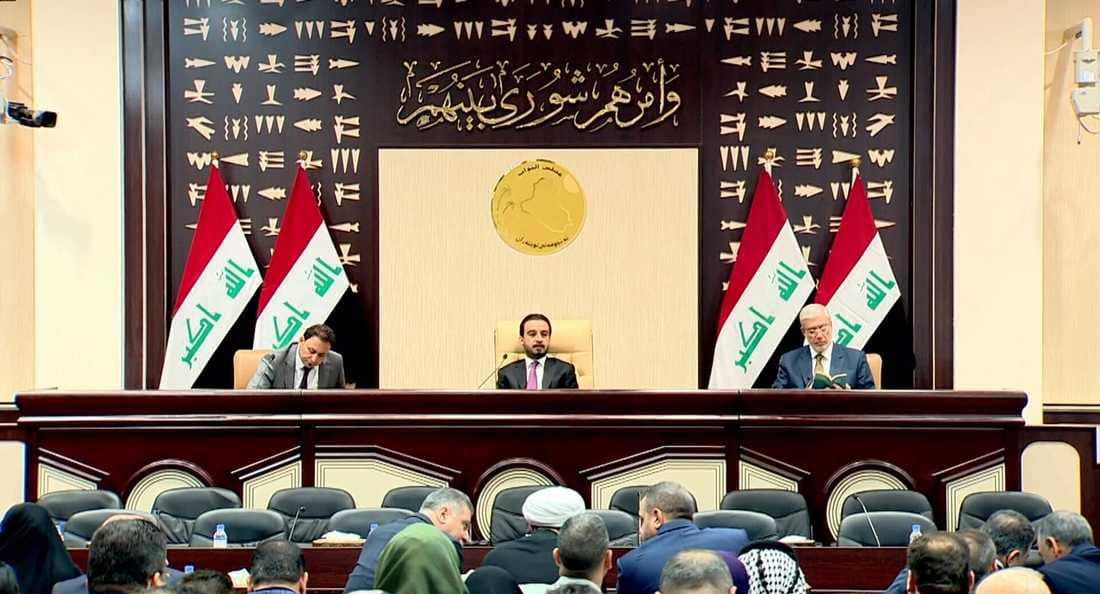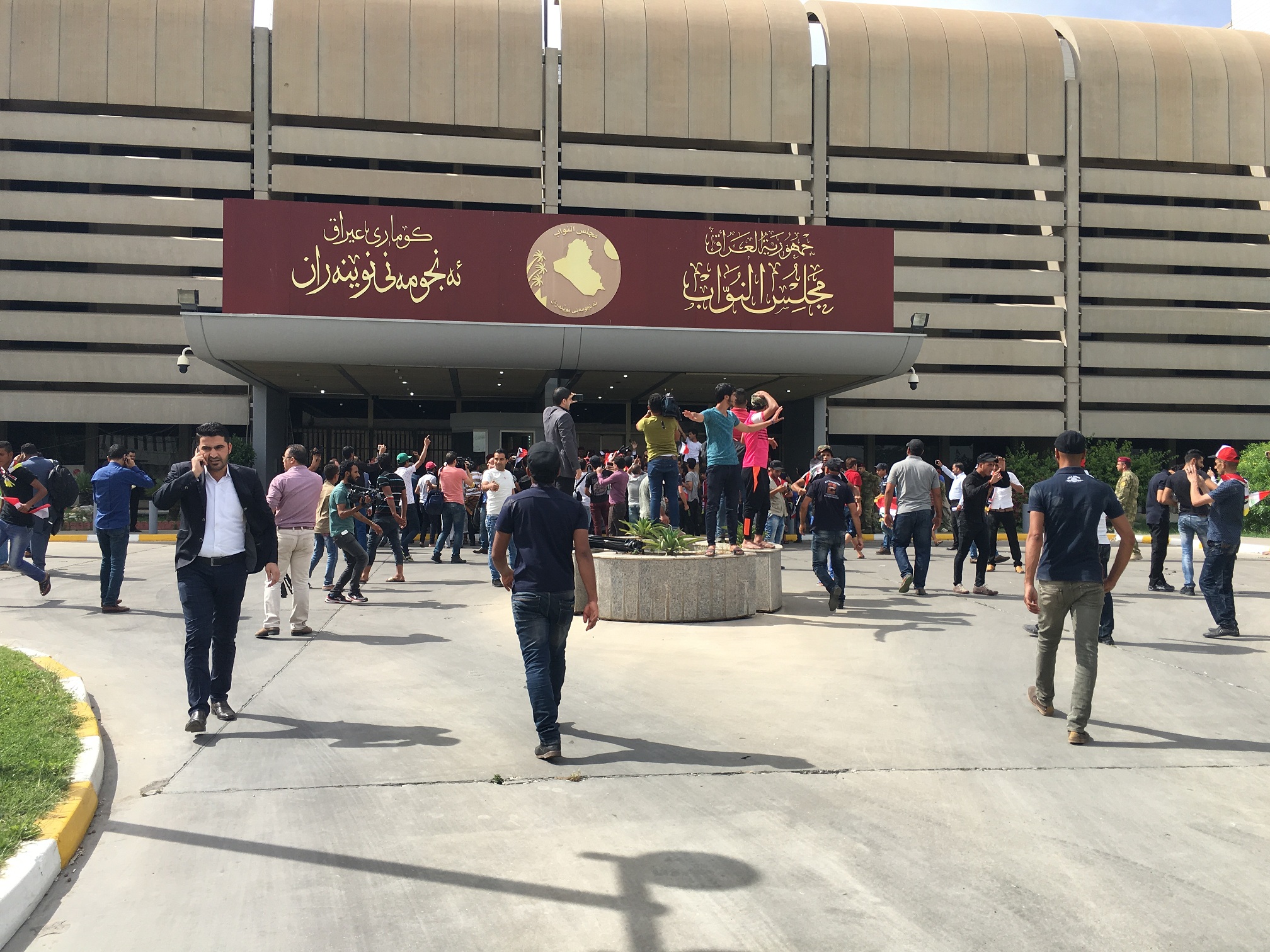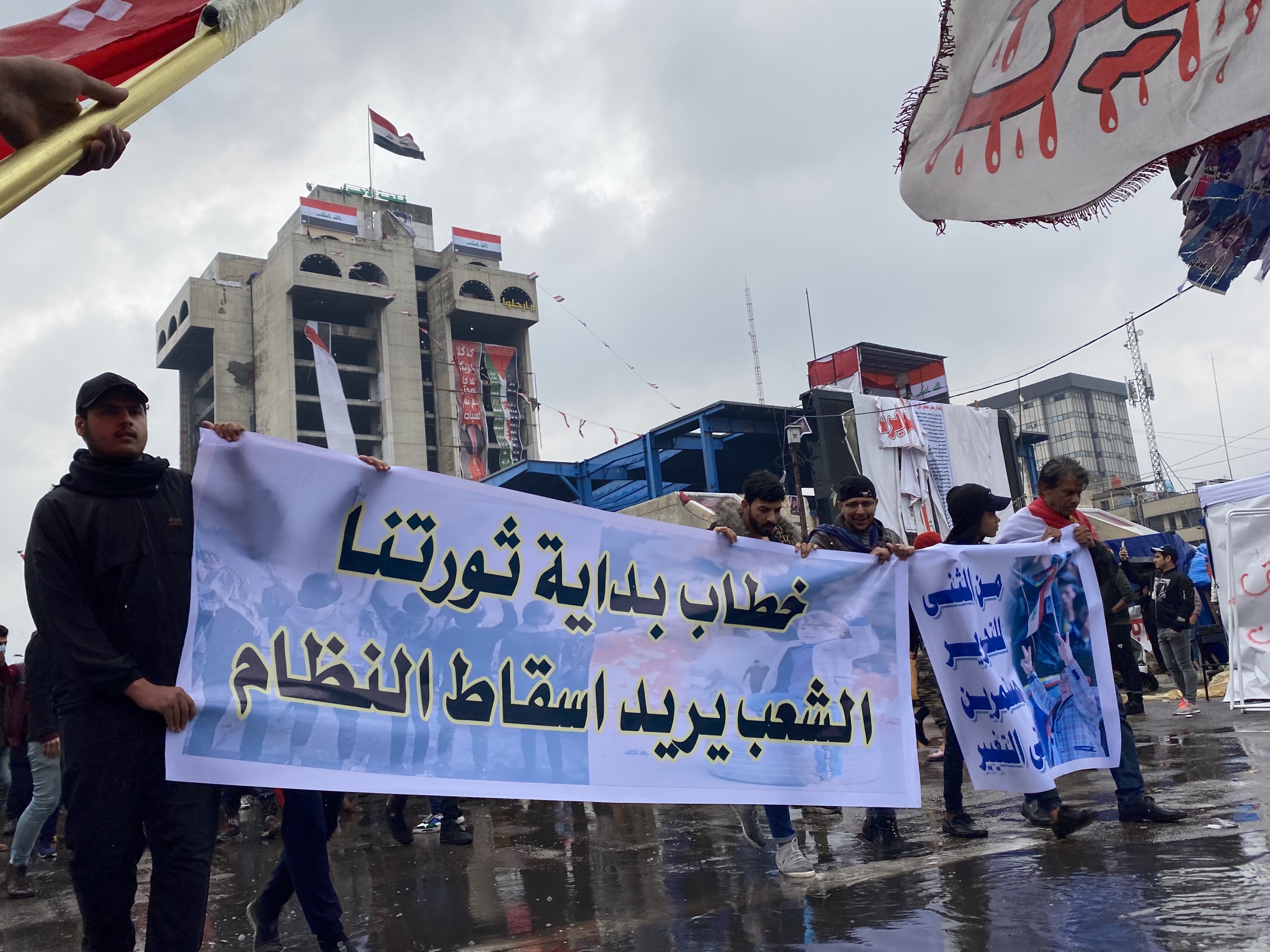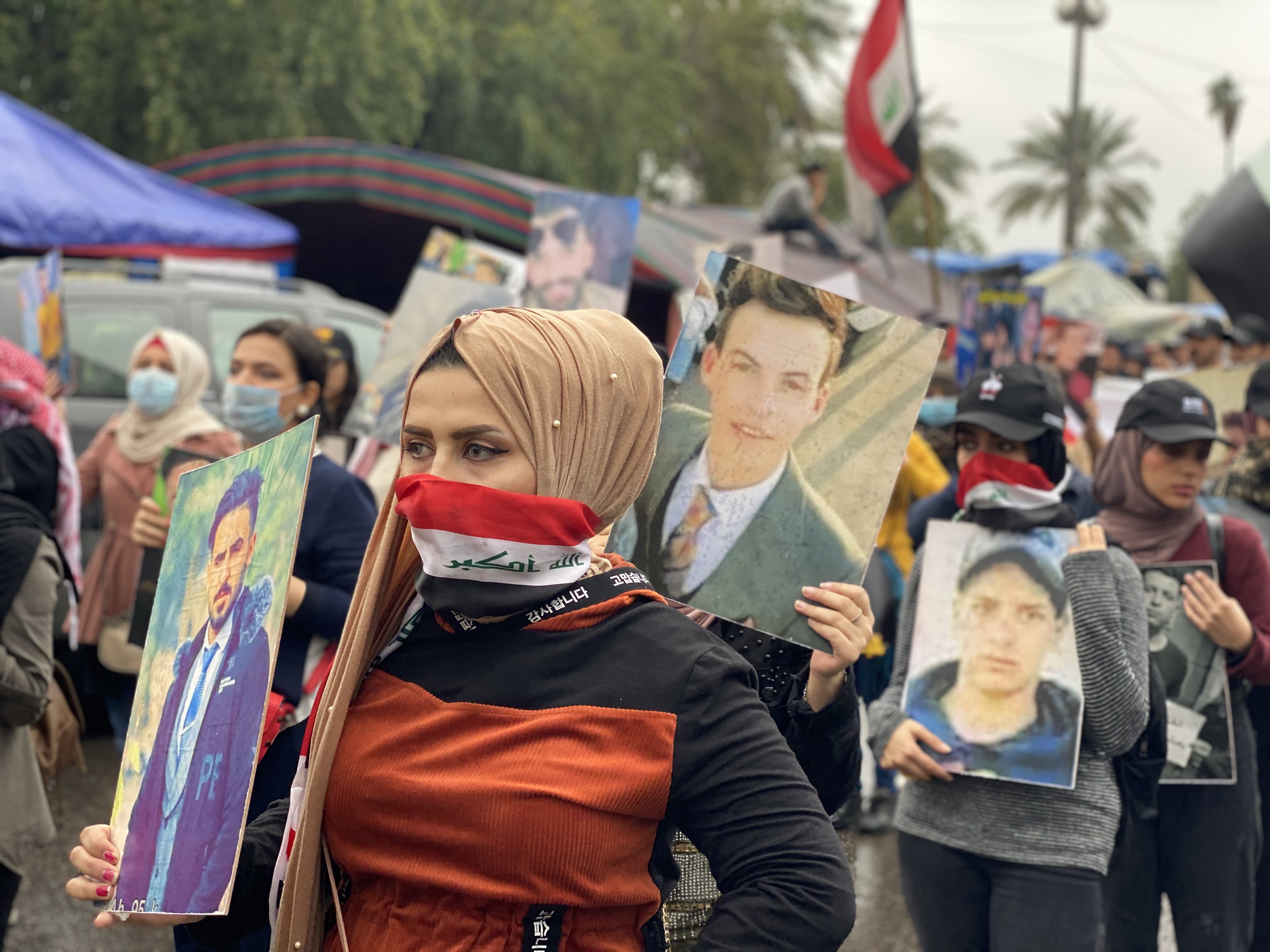Lowering the eligibility age to run for the next parliament and provincial council elections is considered an excellent opportunity for further participation of youth in the political arena as well as becoming part of the decision-making process.
This opportunity is given at a time, based on KirkukNow investigation, young leaders are minorities in the political sphere in Iraq, including the Kurdistan Region.
According to the first amendment of the Iraqi Electoral laws, the eligible age for parliament and provincial council elections has decreased to 25 and 28 years old, respectively. In comparison, the eligibility age was over 30 years old before.
Hussein Habib, 33, is one of the youths who is leading the protests at the Tahrir Square in Baghdad. He considers the achievement as an outcome of the demonstrations and told KirkukNow, “we demanded the electoral laws to be a just law and to create opportunities for youth to reach political arena of Iraq, including the legislative and executive branches.
Habib believes that now the young leaders have a great chance to be part of the decision-making process “if the electoral commission is formed independently and work for a snap election.”

Baghdad, a regular session of Iraqi Parliament, 2019. Photo: Parliament Media
The Iraqi protests, which have continued for five months, have had different results, including the resignation of Prime Minister Adil Abdul Mahdi, dissolution of the provincial councils and electoral commission, amendment of the electoral laws, and taking measures to combat rampant corruption.
The pressure that youths have put on the Iraqi political class is a time that the youths possess a weak presence in the government, parliament, and the provincial councils.
Only 25 percent out of 329 Iraqi parliament members are aged between 28 to 40 years old. Likewise, the federal government only has a minister whose age is below 40, which is not even equivalent to 5 percent of the cabinet.
The Kurdistan Regional Government contains only two ministers who are below the age of 40 among its 21 ministers, prime minister, and deputy prime minister.
The Iraqi authorities are busy forming a new government, one of whose primary responsibility is to conduct an early election whose date is yet to be set.
The nationwide social protests against the government and the political class, the amendment of the electoral laws, and the resignation of the Prime Minister Adi Abdul Mahdi are all seen as a chance to make changes and initiate the participation of youths in the political arena.
“Some of the young protestors want to create political entities and participate in the elections,” Habib said, “but only If the elections are free of the intervention of the political parties and the foundation of the new electoral commission is free, not determining the elections result by money and weapons.”
Protestors, including Habib, want the early election to be under the observation of the United Nations.

Baghdad, a protest in which demonstrators stormed parliament building, 2016. Photo: Reuters
Annually, 800 to 900 thousand Iraqi reach voting age, according to Rzgar Hama, former deputy head of the Iraqi High Electoral Commission (IHEC).
This increasing number of young voters is essential for the young leader who dreams of forming political entities. This is significate for strengthening the role of youth in the next Iraqi parliament and government, depending on the extent to which the youth trust the elections and their representations by the young leaders
Ada Kamaran Ali, 20, is a student at the University of Sulaimani. She put her ballot into the ballot boxes but did not vote for anyone. It was her first participation in the regional elections held in September 2018.
Ali said, “the authority will make the results they want. Based on their interest, they change the results and commit fraud, then why holding elections?”
She thinks, however, that youth can represent themselves and have roles and positions if they are given opportunities and if they are insisting on joining the political arena.
She thinks that if she participates in the future elections, she will not vote for the political parties. Instead, she will vote for a young independent candidate.

Baghdad, protestors are asking for the removal of the government, February 2020. Photo: Amir Khanaqini
But Sahand Soran, 17, who is a high school student and has not reached the voting age, said, “I believe in elections, and it results in changes. If we want to make significant changes through elections, then people should participate in the elections.”
“let youths become candidates. They are the force for change, have new ideas, and better management abilities.”
Based on the Iraqi Ministry of Planning’s estimation for 2018, the age of eight million and 800 citizens are between 20 to 34 years old, equivalent to 24 percent of the Iraqi population, which is 38 million.
Halsho Abdul Fatah, a member of the executive branch of the Kurdish Institue for Election (KIE), said, “election in Iraq including the Kurdistan Region elections have not had direct effects, resulting in the disappointment of youth.
“Disappointment in elections is bad because democracy has no alternatives. Youth participation should be more and should have effects on the decisions and prove their importance
Rinas Hassan Qadir, 21, is a student at the college of sport of University of Sulaimani. She participated in the regional elections for the first time two years ago, but now she regrets that she voted.
She said, “back then, I did not know how unpleasant it is to vote for someone who is not at the level of your trust. When I grew up older, I found out that.”
Nevertheless, she said that if the elections go through their standard procedures and fraud is not committed, then the ballot boxes would become the place for changes.
This female student does not believe in voting for a political party. It is essential to her that the candidate is young and insists on her demands.
Youth disappointment in the election process is consequential to the election’s turnout. 40 to 45 percent of eligible voters of the 2018 Iraqi federal election were youth, according to the recent IHEC statistics KirkukNow obtained.

Baghdad, a young protestor is lighting a candle for the people who lost their lives in the protests. Photo: Ahmad Maslaha
Rizgar Haji Ham said, “among the 25 million people who were eligible to vote, only 44 percent participated in the elections. Youth participation could have been more, but it did not happen.”
In the 2018 elections of the Kurdistan Region, the turnout was 51, and no statistics are available on the rate of youth participation in the election.
The turnout of federal and regional elections held in 2018 recorded the lowest since the removal of the former Ba’th regime in 2003.
Wshyar Ismail, a member of Sulaimaniyah provincial council, said, “those members who are young in our council follow up the projects more and visit different places more, but those who are old are less able to visit the projects.”
“Those who have more experience have more expertise in the committees. And we, the young members, deliver the perception of people on the projects and we play the roles together,” stated Ismail, who belong to the Patriotic Union of Kurdistan (PUK) bloc in the council.
Kawa Abdullah, Gorran movement’s member in the Iraqi parliament, claimed, “Working in parliament requires expertise and experience to look at the topic deeply.”
“It is important that experienced people and youth are representing together because they will complement each other in their works,” he said, “in the political process, the young people are more passionate and have more abilities for parliamentarian works.”





